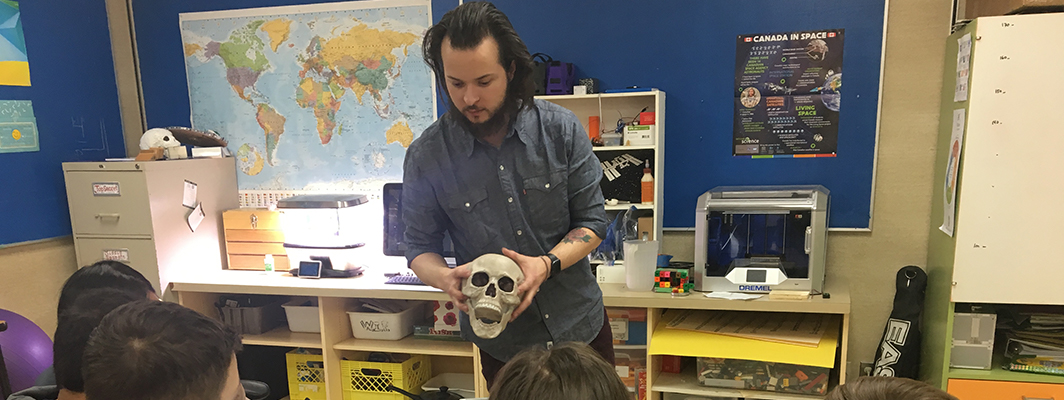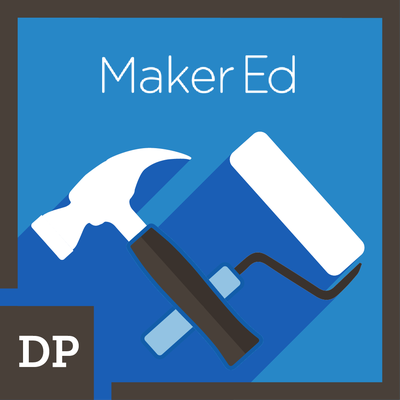
Trevor’s love for school and passion for learning inspired him to become an educator. He started his teaching career in youth housing, where he developed curriculum and lessons on life skills. This experience led him to the belief that students are more engaged when they are able to make positive and meaningful connections with their teacher, their peers, and with what they are learning. Now as a middle-years teacher, he seeks to continue helping students make these positive connections both inside and outside of the classroom. As an HP Teaching Fellow, Trevor is excited to try new tools and approaches for teaching, and share his passion for learning with like-minded educators.
“My strategy in the classroom is to make multiple connections for my students between their subjects- weaving science into maths, language arts, social and more. Through weaving subjects and ideas together in engaging ways for my students instead of independent pockets of learning allows them to smoothly transition between new ideas and past learning. This strategy fits in well with all four Powerful Learning Principles with the biggest being in collaborative and connected. We, in the real world, don’t learn in designated pockets or subjects but in contextual situations with others around us- through interweaving ideas and subjects together I help my students make connections and work together to solve challenges that come up.”
“Experience and Education by John Dewey. One of the earliest voices of progressive, experiential learning John Dewey’s work here has influenced my teaching and my learning to improve student experience in the classroom- to make it authentic, engaging, and continuous throughout the day and year.”
“Teachers can be agents of change in their communities by taking chances, by being curious, by not falling victim to the trap of being stale and stagnant. Just because you haven’t tried something, doesn’t mean that you shouldn’t. Take chances. Make mistakes. It’s okay! But take the chance.”
“Connected learning, cross-curricular and multi-grade planning, and improving student engagement.”

Learn more about HP Teaching Fellows.


We want to hear from you!
Please take this 5-minute survey and help us serve you better.
